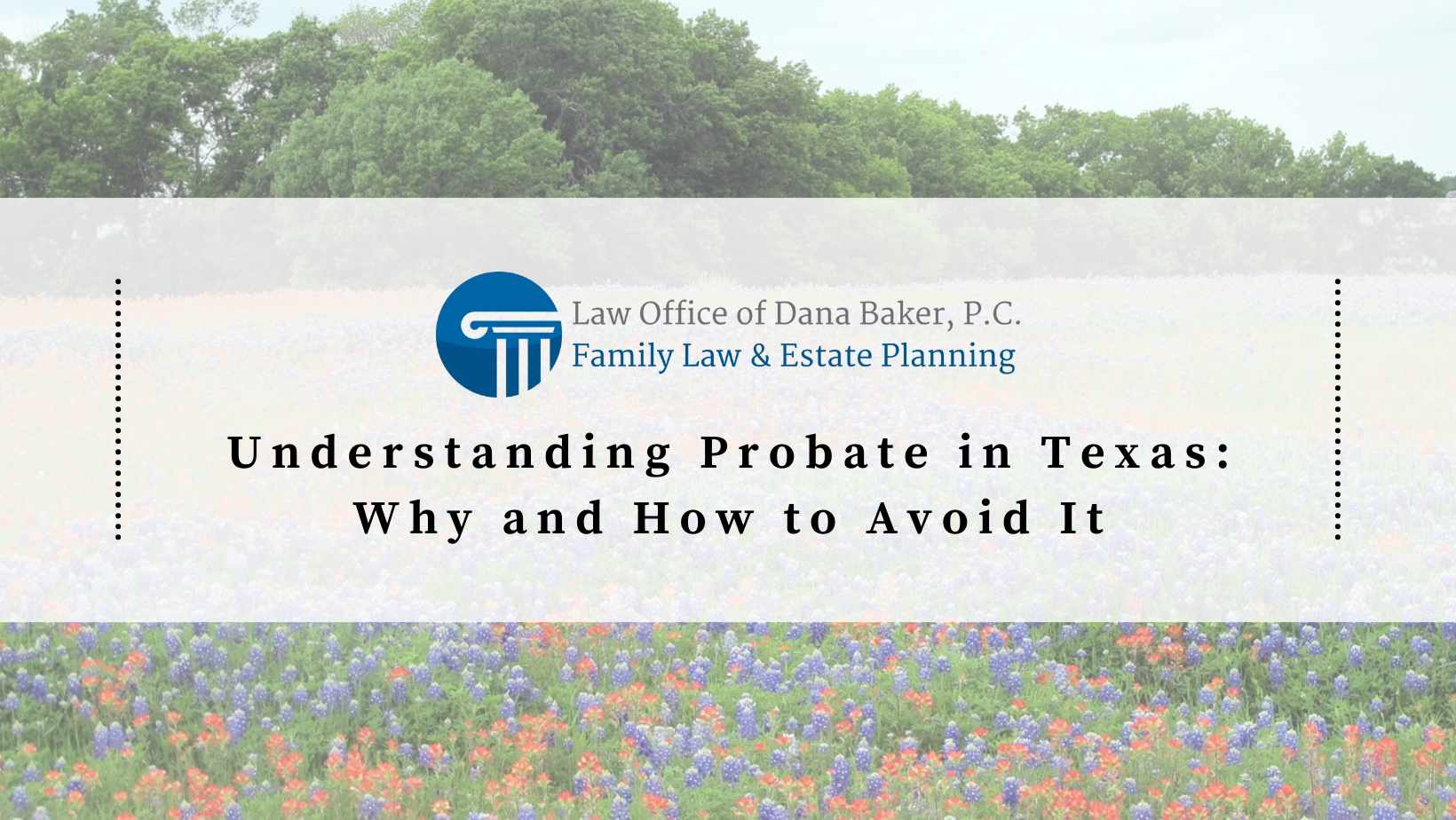For many Texas residents navigating the world of estate planning, the term ‘probate’ often surfaces as a central concern. But what is probate, and why do so many individuals aim to avoid it? Here, we’ll dive deep into the nuances of Texas probate law and discuss strategies to sidestep this process.
What is Probate?
Probate is a legal process wherein a deceased individual’s estate is settled and their assets are distributed to beneficiaries. In Texas, as in other states, the probate process involves:
- Proving in court that a deceased person’s will is valid (if there is one).
- Identifying and inventorying the deceased person’s property.
- Appraising the property.
- Paying off any debts and taxes.
- Distributing the remaining property as the will (or state law, if there’s no will) dictates.
Why Avoid Probate?
- Time Consuming: Probate can be a lengthy process. Depending on the estate’s complexity and other factors, it can take anywhere from a few months to several years.
- Costly: Probate isn’t free. Between court fees, attorney’s fees, executor’s fees, and other costs, the process can eat into the estate’s funds. In some cases, especially if the probate is contested, these costs can be substantial.
- Public Record: All probate proceedings are public record in Texas. This means personal financial details of the decedent can become accessible to anyone who wishes to search for them.
- Emotional Stress: For grieving families, the formalities and complexities of the probate process can add unnecessary stress.
How to Avoid Probate in Texas:
- Living Trusts: One of the most common tools used to avoid probate is a revocable living trust. Assets within a living trust are not subject to probate. Upon the grantor’s death, assets within the trust are passed on to beneficiaries without the need for court intervention.
- Joint Ownership: Property that is jointly owned could be set up to have rights of survivorship, meaning the surviving owner automatically owns the property after the other’s death.
- Payable-on-Death (POD) and Transfer-on-Death (TOD) Designations: Texas law allows you to add POD designations to bank accounts and TOD designations to securities. When the account or security owner dies, the assets pass directly to the named beneficiary without going through probate.
- Beneficiary Designations on Retirement Accounts and Life Insurance: By naming a beneficiary for retirement accounts, such as IRAs or 401(k)s, and life insurance policies, those funds will be distributed directly to the beneficiary without undergoing probate.
- Lady Bird Deeds: A Lady Bird Deed allows a property owner to transfer a remainder interest in their property to a beneficiary while retaining a life estate with full rights to use, sell, or mortgage the property during their lifetime.
- Revocable Transfer on Death Deeds: This type of deed allows a property owner to name a beneficiary who will inherit the property upon the owner’s death, without the need for probate.
- Motor Vehicle Beneficiary Designation: The Texas Department of Motor Vehicles has created a process to transfer a vehicle to a beneficiary upon the owner’s death. The owner must first complete the Beneficiary Designation of a Motor Vehicle form, which tells the Texas DMV who the owner wants the car to go to.
Probate, while a standard legal process, can often be avoided with some proactive estate planning. By understanding Texas law and utilizing tools like trusts, joint ownership, and beneficiary designations, Texans can ensure their assets pass on to their loved ones efficiently and privately. Always consult with an experienced Texas estate planning attorney to determine the best strategies for your individual circumstances.
